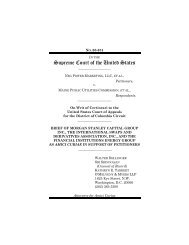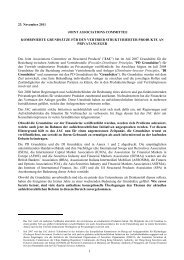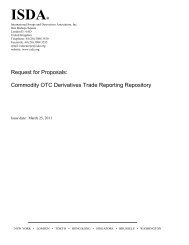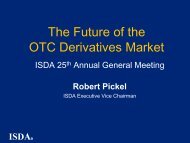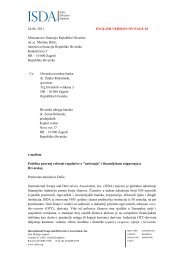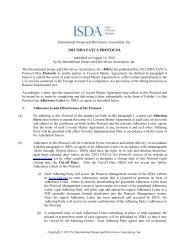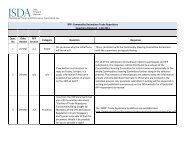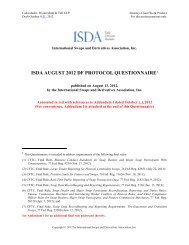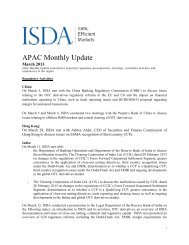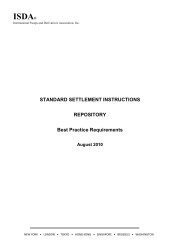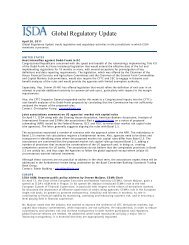Petition for a Writ of Certiorari - Snohomish. - ISDA
Petition for a Writ of Certiorari - Snohomish. - ISDA
Petition for a Writ of Certiorari - Snohomish. - ISDA
Create successful ePaper yourself
Turn your PDF publications into a flip-book with our unique Google optimized e-Paper software.
3function that will impose enormous costs on the Americanpublic.SUMMARY OF ARGUMENTUnless corrected, the Ninth Circuit’s decisions will causeserious harm to the market <strong>for</strong> wholesale electric power. Thatmarket is extraordinarily important to the Nation’s economy.End users spend about $300 billion annually to purchase electricity,and much <strong>of</strong> that power is purchased in a vibrant wholesalemarket that has developed over the past decade. In addition toproducers and retail distributors <strong>of</strong> power, participants in thiswholesale market include many firms that principally operate astraders. Their presence has enhanced market liquidity and transparency,and has permitted producers and distributors to reducetheir exposure to financial risk by using contractual arrangementsthat shift risk to traders with greater expertise in riskmanagement.It is essential <strong>for</strong> those traders, and <strong>for</strong> other market participants,to be able to rely on the integrity and en<strong>for</strong>ceability <strong>of</strong>contracts. That need has been served <strong>for</strong> more than half a centuryby the Mobile-Sierra doctrine, which prevents the regulatoryabrogation <strong>of</strong> contracts in all but the most extraordinarycircumstances. The Ninth Circuit’s decisions, while purportingto apply that doctrine, effectively overrule it.The Ninth Circuit held that the Mobile-Sierra doctrinecannot be invoked unless the Federal Energy RegulatoryCommission (FERC) had an initial opportunity to conduct aplenary “just and reasonable” review <strong>of</strong> contract rates and toreview the market conditions under which the contract wasnegotiated – and to conduct such a review not just when thecontract is executed, but years later, with the benefit <strong>of</strong> hindsight.The Ninth Circuit then held that buyers may escape theircontractual obligations and obtain rate reductions if, in retrospect,their contract was negotiated in a “dysfunctional” marketand established rates that proved to be outside a zone <strong>of</strong> reasonableness.These standards dramatically undermine sellers’ability to rely on buyers’ contractual commitments.



